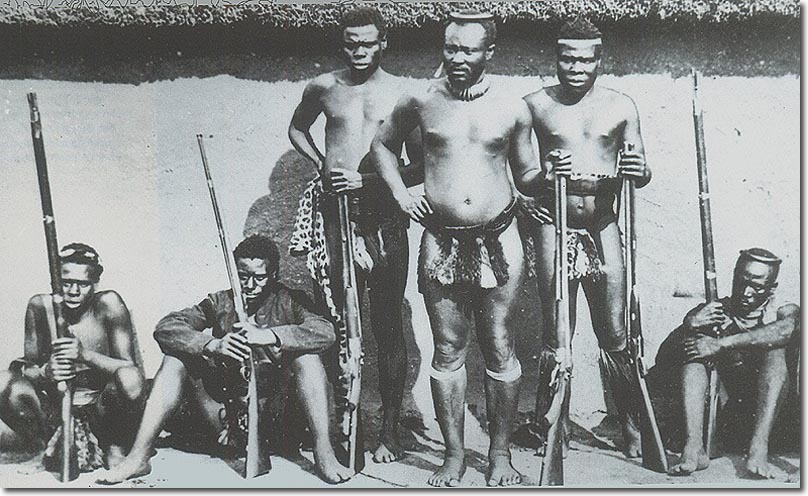|
|


|
|
Dabulamanzi was the commander of the Zulus that attacked Rorke's Drift on 22nd Jan 1879. The photo shows him standing slightly in front of some of his men. The photographer attended the coronation of King Cetshwayo in 1874 and caught images of various Zulu dignitaries. He has the 'isicoco' ring on his head which signified age or seniority. He was one of the king's younger brothers and was about 40 at the time of the Anglo-Zulu War. He was intelligent and enthusiastic about fighting the British. He lived mostly at u-Zluwini in the coastal country near Eshowe. His name meant 'part the waters'. He was a good rider and shot well. There are many pictures of him on horseback and wearing European clothes. Apparently he liked gin. The traveller Bertram Mitford described Dabulamanzi as having light-coloured skin, a high intelligent forehead, clear eyes and handsome features. He suspected that he was a cunning and insincere man who probably deserved the term 'blackguard' (pronounced blaggard) that was frequently used by people who had dealt with him. Although he held no official command position his status as a prince gave him authority. He was impulsive and overbearing and had a haughty manner.
He achieved considerable notoriety among the British troops as one of the most daring of the Zulu commanders, and played a major role in some of the battles. He was at Gingindlovo but not at Unlundi. His homestead was attacked, one of the last actions ordered by Chelmsford, and Dubalamanzi exchanged shots with the soldiers. He actually surrendered to the British on 12th July 1879 and was placed in the charge of John Dunn who lived near him and knew him well. He lived until 22nd Sep 1886 when he was shot by Boers in a dispute over cattle-stealing. |
Armed Forces | Art and Culture | Articles | Biographies | Colonies | Discussion | Glossary | Home | Library | Links | Map Room | Sources and Media | Science and Technology | Search | Student Zone | Timelines | TV & Film | Wargames
